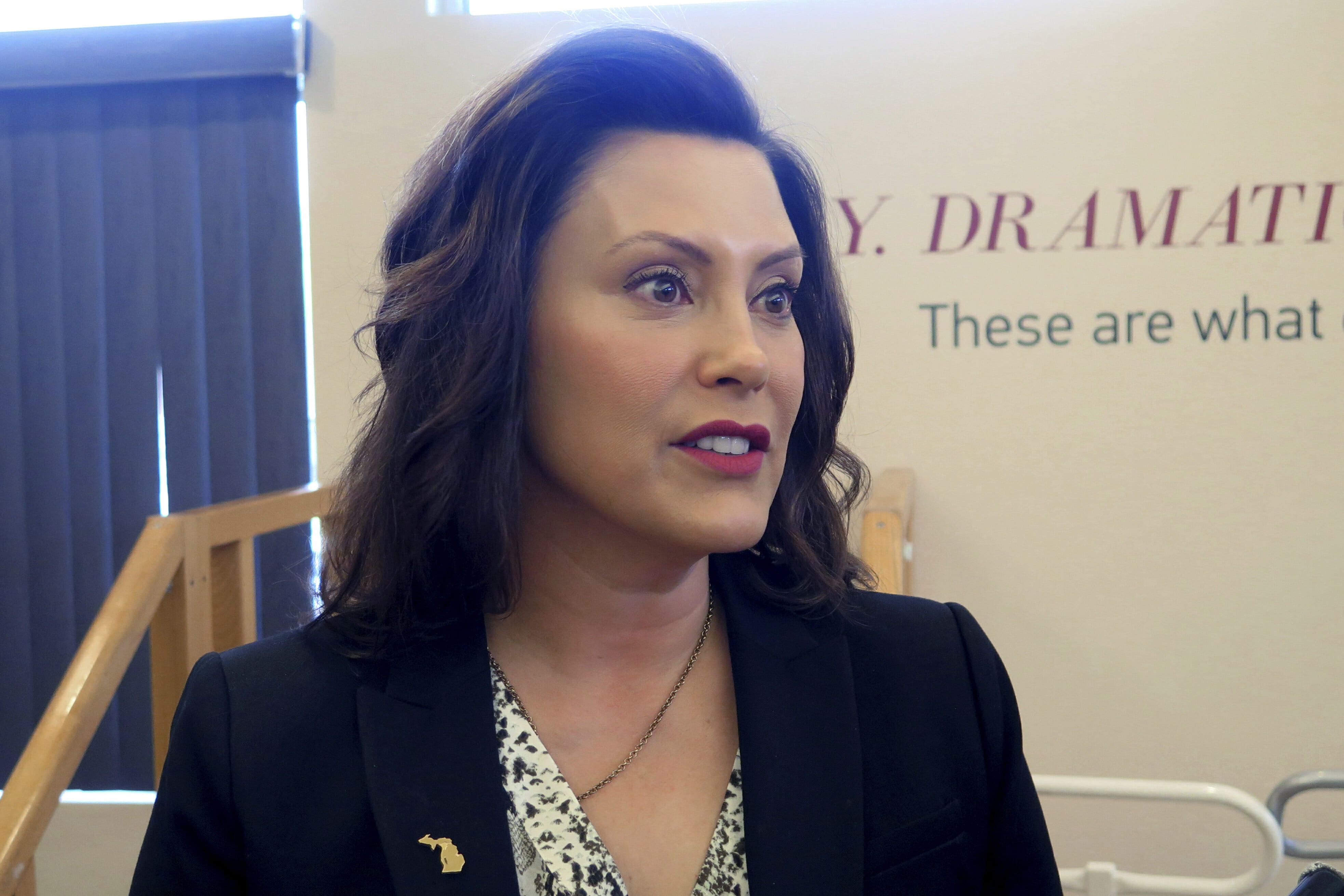
Michigan's governor, lawmakers reach deal on auto insurance
LANSING, Mich. (AP) — Michigan’s Legislature on Friday began passing a bill that would cut the country’s highest auto insurance premiums by letting drivers forego a one-of-a-kind requirement to buy unlimited medical coverage for crash injuries.
The voting followed the announcement of an agreement between Republican legislative leaders and Democratic Gov. Gretchen Whitmer. She said the legislation would guarantee rate reductions for every motorist and offer choice among personal injury protection, or PIP, levels. PIP, on average, makes up half of car premiums.
The measure — approved 94-15 by the House — also would prohibit the use of several non-driving factors in setting rates and scale back reimbursements for health providers that treat accident victims. Unlike several other no-fault states, Michigan does not have a fee schedule for care covered by auto insurers. They pay much more for the same services than is paid by employer plans or government insurance such as Medicare or Medicaid.
A driver choosing to stick with unlimited coverage would see a 10% PIP reduction. Someone who fully opted out would get a 100% cut, if they have health insurance, and potentially also avoid paying much of a $220 annual per-vehicle fee that reimburses car insurers when severely injured motorists’ expenses exceed a certain amount.
People on Medicaid would have to get at least $50,000 in benefits and would pay 45% less. People picking one of two other options — $250,000 or $500,000 of coverage — would see a 35% or 20% reduction.
The rollback in PIP rates would start in July 2020 and last for eight years. The Senate planned to vote later Friday.
“After constructive conversations over the past week, I am pleased to announce that we have reached an agreement in concept on bipartisan auto no-fault reform legislation that will lower costs and protect coverage for Michigan drivers,” Whitmer said in statement.
House Speaker Lee Chatfield and Senate Majority Leader Mike Shirkey, both Republicans, said the wait is over after decades of inaction.
“Today’s vote will be a significant victory for the hard-working people of Michigan that will finally fix our broken car insurance system and deliver real, meaningful rate relief for families, seniors and household budgets all over the state,” they said in a statement.
The average premium in Michigan — which is $2,693, according to the most recent report from The Zebra, an insurance comparison website — is 83% higher than the national average of $1,470. Detroit’s premium on average is $5,464, far surpassing any other U.S. city.
Detroit Mayor Mike Duggan and others filed a lawsuit last year asking that the 1973 no-fault law be declared unconstitutional for failing to provide “fair and equitable” insurance rates. Duggan, a Democrat, said in a statement Friday that the agreement is “outstanding” and “will cut rates for Michigan drivers significantly.”
Despite the deal, some House Democrats voted no.
Rep. Sherry Gay-Dagnogo of Detroit said proposed bans on the use of credit scores and ZIP codes as rating factors would not go far enough because insurers could still base premiums by territory and use drivers’ credit-related information. She said Whitmer “worked to do the best that she could do,” but should veto the bill.
“In order for us to get to its best current form would be to remove territorial rating. That’s the true root cause of redlining,” she said. “How we treat our citizens across the state fairly — that’s been her commitment on the trail, that’s been mine, that’s been my colleagues’ — I think for us to deviate from that today says something about our value statement.”
The compromise came the same week that billionaire businessman Dan Gilbert took initial steps toward launching a ballot drive as a “failsafe” in case the Legislature and governor did not enact legislation. The move would have enabled GOP lawmakers to overhaul the insurance law without having to worry about a gubernatorial veto.
___
Follow David Eggert on Twitter: https://twitter.com/DavidEggert00
The Western Journal has not reviewed this Associated Press story prior to publication. Therefore, it may contain editorial bias or may in some other way not meet our normal editorial standards. It is provided to our readers as a service from The Western Journal.
Truth and Accuracy
We are committed to truth and accuracy in all of our journalism. Read our editorial standards.
Advertise with The Western Journal and reach millions of highly engaged readers, while supporting our work. Advertise Today.












